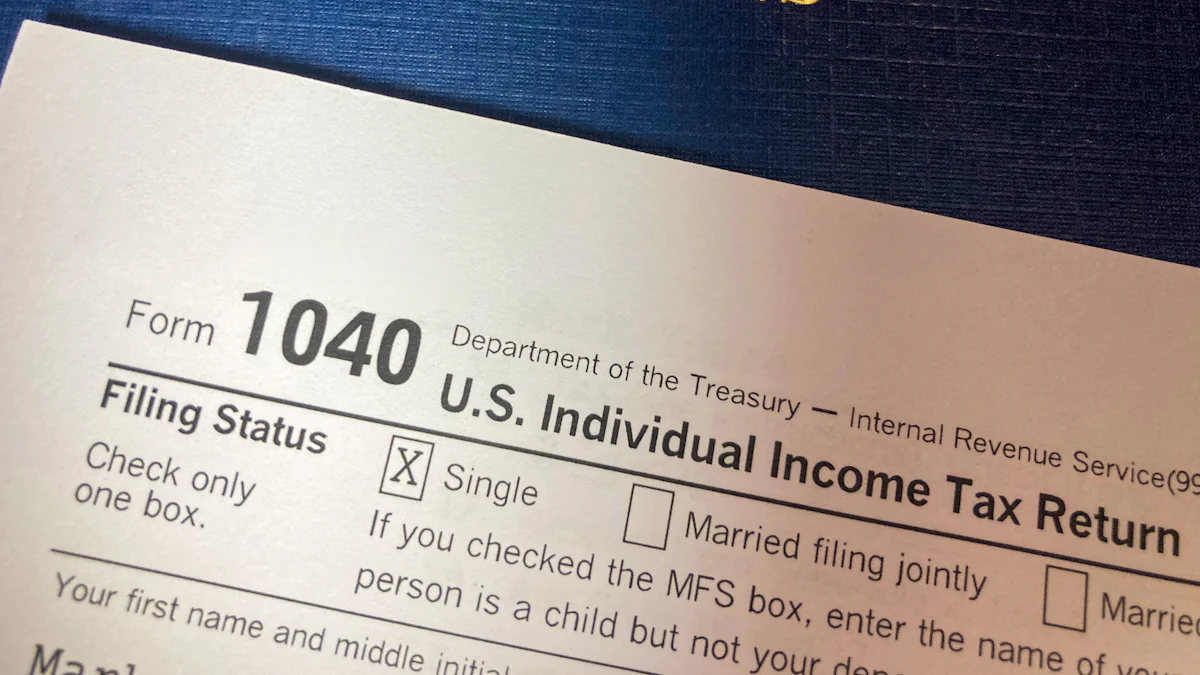Are You Aware of These IRS Offer In Compromise Must-Haves?

When considering an IRS Offer in Compromise, it is crucial to understand the essential requirements for a successful application. Meeting these of acceptance by the IRS. In this section, we will delve into What Are The Quintessential Requirements For An IRS Offer In Compromise? that applicants must fulfill to qualify.
What Are The Quintessential Requirements For An IRS Offer In Compromise?
Filing All Tax Returns
To begin the process of an IRS Offer in Compromise, filing all tax returns is a fundamental requirement. This step ensures compliance with IRS regulations and demonstrates a commitment to resolving IRS tax issues. Failure to file returns can lead to severe consequences, including penalties and legal actions by the IRS.
Receiving a Bill for Tax Debt
Understanding the nature of your tax debt is crucial when pursuing an Offer in Compromise. Upon receiving a bill from the IRS, it is essential to assess the amount owed accurately. Taking prompt action upon receiving a bill is vital to initiating the resolution process effectively.
Making Required Estimated Tax Payments
Timely payments of estimated taxes play a significant role in qualifying for an Offer in Compromise. Calculating these payments correctly and submitting them on time showcases financial responsibility and increases eligibility for tax relief programs.
Meeting Federal Tax Deposit Obligations
When it comes to Meeting Federal Tax Deposit Obligations, business owners must adhere to specific requirements set by the IRS. Ensuring compliance with these obligations is crucial for maintaining a good standing with the IRS and avoiding potential penalties. Here are some essential points to consider:
Requirements for Business Owners:
Timely Deposits: Business owners need to make timely federal tax deposits to fulfill their obligations accurately.
Correct Calculation: It is vital to calculate the deposit amount correctly based on the business's tax liabilities and deposit schedule.
Ensuring Compliance with Deposits:
Record-Keeping: Maintain detailed records of all federal tax deposits made, including dates and amounts deposited.
Regular Monitoring: Regularly monitor your deposit activities to identify any discrepancies or issues that may arise.
By meeting these obligations diligently, business owners can demonstrate financial responsibility and compliance with IRS regulations, increasing their eligibility for an Offer in Compromise.
Understanding The Process
Using the IRS Offer in Compromise Pre-Qualifier Tool
When considering an IRS Offer in Compromise, utilizing the IRS Offer in Compromise Pre-Qualifier Tool can be immensely beneficial. This tool allows individuals to assess their eligibility for the program and provides valuable insights into the offer amount they may qualify for. By inputting relevant financial information, taxpayers can gain a preliminary understanding of their potential options for resolving tax debt.
Benefits of the tool:
Instant Assessment: The tool offers an instant assessment of eligibility, saving time and providing clarity on whether an Offer in Compromise is a viable solution.
Transparency: It promotes transparency by outlining the criteria used to evaluate eligibility, empowering taxpayers with knowledge about the process.
How to use it effectively:
Accurate Information: Ensure all financial details entered into the tool are accurate and up-to-date to receive a reliable assessment.
Review Results: Carefully review the results provided by the tool to understand your eligibility status and next steps in pursuing an Offer in Compromise.
Calculating the Offer Amount
Determining the Offer Amount is a critical step in the IRS Offer in Compromise process. Several factors influence this calculation, including income, expenses, assets, and future earning potential. It is essential to approach this calculation methodically to ensure that the offer presented to the IRS is realistic and reflective of your financial situation.
Factors affecting the offer:
Income Evaluation: The IRS considers your current income and future earning capacity when calculating the offer amount.
Asset Assessment: Assets such as real estate, vehicles, and investments are evaluated to determine their impact on your ability to pay off tax debt.
Ensuring a realistic offer:
Honesty: Provide accurate financial information to avoid discrepancies that could lead to rejection of your offer.
Professional Guidance: Seeking assistance from tax professionals can help ensure that your offer amount aligns with IRS guidelines and increases its chances of acceptance.
Submitting the Offer
Once you have calculated a realistic offer amount, it is crucial to prepare and submit your offer accurately. This involves completing specific forms and gathering necessary documentation to support your submission. Avoiding common mistakes during this stage can streamline the process and improve your chances of securing tax relief successfully.
Required forms and documentation:
Form 433-A (OIC): This form outlines detailed financial information required by the IRS for evaluating your offer.
Supporting Documents: Gather supporting documents such as bank statements, pay stubs, and asset valuations to substantiate your financial standing.
Common mistakes to avoid:
Incomplete Information: Ensure all forms are filled out accurately and completely before submission.
Missing Deadlines: Adhere strictly to submission deadlines set by the IRS to prevent delays or rejection of your offer application.
Tips For A Successful Application
When applying for an IRS Offer in Compromise, seeking professional help can significantly enhance your chances of success. Consulting experts who specialize in tax relief services can provide valuable insights and guidance throughout the application process. Their expertise can help you navigate complex IRS requirements and ensure that your submission meets all necessary criteria.
Benefits of consulting experts:
Specialized Knowledge: Tax professionals have in-depth knowledge of IRS procedures and regulations, allowing them to offer tailored advice based on your specific circumstances.
Application Assistance: Experts can assist with completing required forms, gathering supporting documentation, and calculating the optimal offer amount to maximize your chances of acceptance.
Avoiding excessive fees:
Transparent Pricing: Reputable tax relief services offer transparent pricing structures, ensuring that you are aware of all costs upfront.
Cost-Effective Solutions: By avoiding promoters who charge excessive fees, you can pursue a cost-effective solution for resolving your tax debt without unnecessary financial burden.
Staying organized throughout the application process is essential to demonstrate diligence and professionalism to the IRS. Keeping track of all relevant documents and following up promptly on any requests or updates can streamline the process and increase the efficiency of your application.
Keeping track of documents:
Maintain a comprehensive file containing all necessary paperwork, such as tax returns, financial statements, and correspondence with the IRS.
Organize documents systematically to facilitate easy access when required during the application process.
Following up with the IRS:
Regularly check for updates on your application status through the IRS portal or by contacting designated representatives.
Respond promptly to any additional requests or inquiries from the IRS to expedite the review process and ensure timely resolution of your tax debt.
By leveraging professional expertise and maintaining meticulous organization throughout the application process, you can enhance your chances of securing an IRS Offer in Compromise successfully.
Recapping the What Are The Quintessential Requirements For An IRS Offer In Compromise? is vital. Meeting these criteria, including filing all tax returns and making required estimated tax payments, significantly boosts eligibility for an Offer in Compromise. It's crucial to understand the importance of fulfilling these requirements to navigate the IRS process successfully. Utilizing available resources, such as the IRS Offer in Compromise Pre-Qualifier Tool, can streamline your application. For expert guidance and assistance throughout the process, consider consulting Brightside Tax Relief.
Contact your Tax Resolution Attorney
Secure your financial peace of mind today. For more information, please visit https://taxresolution.esq.
Attorney Orlando R. Dizon | Tax Resolution, Esq | Houston Tax Resolution Attorneys
See Also
Exploring the Key IRS Offer in Compromise Conditions
Deciphering the Qualification Standards for an IRS Offer in Compromise
Ways to Assess Your Eligibility for an IRS Offer In Compromise
Comprehending IRS Offer in Compromise for Settling Tax Debt Problems
Tips for Readying Yourself to Submit an IRS Offer in Compromise
Subscribe to get the updates!
Sign up now to receive timely blog updates.
I accept the email subscription terms.

